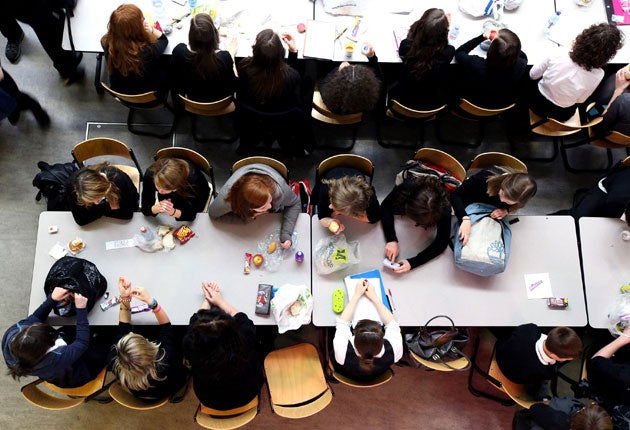Schools watchdog 'too big to work'
Overblown Ofsted should be split up and needs staff with more experience, says Commons report

Ofsted, the school and children's service standards watchdog, has become too big to be effective, according to MPs. It also relies too heavily on inspectors who have no recent experience of schools, nurseries or colleges.
The comments come in a report published today by the influential Commons Education Select Committee which calls for a radical overhaul of the way the inspectorate works.
In particular, the MPs want to split Ofsted in two: one to cover education, the other children's care, such as childminding and social services. "Ofsted's remit has grown substantially since its inception but this has come at the expense of a more specialised service," said Graham Stuart, the committee's Conservative chairman.
The report points out that Ofsted is now responsible for inspecting state and independent schools; childminders; children's services and social care as well as adoption and fostering agencies; further education colleges; teacher training and prison learning.
"Ofsted has grown too big to discharge its functions as efficiently as smaller, more focused and specialist organisations might," it adds.
On the quality of inspectors, it cites the words of a former deputy director of education at Ofsted, David Singleton, who said that too many are not fully up to date and have "little notion of the pressures on modern teachers".
"We believe that this lack of recent and relevant experience of the front line has contributed to a loss of faith in the inspection system," it adds.
"Urgent reform is needed to ensure that the new inspectorates of education and children's care recommended by the MPs have credibility within their respective sectors."
The report recommends head teachers' and senior local authority officers' contracts should include periods of secondment to Ofsted.
The report also recommends that a fifth schools inspection verdict should be added to outstanding, good, satisfactory and inadequate. Inspectors should be able to deliver a "stuck" verdict – a school satisfactory for years but showing no sign of improvement.
The report warned that Ofsted's voluntary registration system for some childcare workers was "seriously flawed". Those caring for over-eights, or looking after children in their own homes, are not required to register – and those who did "self-declare" only had to tick a series of boxes stating that they met legal standards.
The committee was told some carers had produced false documents to support their application and one who had successfully registered on the Voluntary Childcare Register had a false visa and was illegally working in the UK, yet produced a letter from Ofsted confirming her registration.
The MPs back the idea of "no-notice" inspections. "We are convinced that unannounced inspections are the preferable model and we recommend that this becomes the norm as far as possible," they conclude.
Christine Gilbert, the chief schools inspector, said: "There are many constructive suggestions and observations contained in the report and we will now consider these in detail to continue to improve our work."
Russell Hobby, the general secretary of the National Association of Head Teachers, added: "A good inspection system is in the interest of schools as well as pupils and parents. Implementation of these findings would take us one step closer to this."
Key recommendations
* Ofsted should be split into two inspectorates – one for education and one for children's services.
* The Government should appoint a Chief Education Officer and Chief Children's Services Officer to reflect this.
* Head teachers and senior local authority personnel should routinely be seconded to Ofsted to give inspection teams more up-to-date knowledge of settings.
* Inspectors should be able to deliver a "stuck" verdict on schools to show they are satisfactory but have failed to improve.
* Most inspections in future should be unannounced, although the committee recognise childminders should be given notice to avoid them going out to the park.
Join our commenting forum
Join thought-provoking conversations, follow other Independent readers and see their replies
Comments
Bookmark popover
Removed from bookmarks